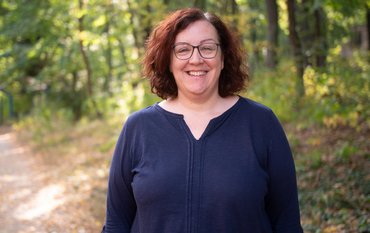On Saturday, 4 May 2024, around 6,200 people came to the 11th Potsdam Science Day on Telegrafenberg. For the first time, the four institutes of the ‘Albert Einstein Science Park’ hosted this event: the Helmholtz Centre Potsdam – German Research Centre for Geosciences GFZ, the Potsdam Research Unit of the Alfred Wegener Institute, Helmholtz Centre for Polar and Marine Research AWI, the Potsdam Institute for Climate Impact Research PIK and the Leibniz Institute for Astrophysics AIP.
A total of 36 research institutions from Potsdam and the state of Brandenburg offered 150 programme items – from information stands, hands-on experiments, lectures, discussions and workshops to laboratory visits and guided tours of the historic science park. The GFZ alone was represented with 27 stations. In the early summer weather, many families with children made their way to science. They were especially happy about the many hands-on activities on offer. There was also plenty of inspiration for professionals from daycare centres and schools as well as prospective students or youngsters in search of professional orientation.
Impressions of the day can be found in the labelled picture gallery at the top of this page.
Opening by Potsdam's Lord Mayor Mike Schubert and GFZ Director Susanne Buiter
Together with Potsdam's Lord Mayor Mike Schubert and Simone Leinkauf, Managing Director of the organising association ProWissen, Susanne Buiter, Scientific Director of the largest host institute GFZ, welcomed the guests from the world of science and the visitors:
“We institutions on the Telegrafenberg are particularly pleased that we can show the guests at the Potsdam Science Day our research on the Earth system, on climate and the energy transition or on icy permafrost regions and distant galaxies and bring it to life. Today, we also want to show together how important dialogue between science and all parts of society is. It's not just about presenting ourselves, but also about listening to people's questions and providing answers. We are therefore also very pleased about the many other scientific institutions and universities from the region that are also bringing themselves and their topics to life on our campus.”
The official discovery tour started at the GFZ stand on earthquakes
This was followed by the traditional official discovery tour, which was also attended by Brandenburg's Science Minister Manja Schüle. The route led to stations at all four host institutions and began at the GFZ stand on the subject of earthquake risk and earthquake-proof construction. Here, a mini earthquake could be triggered and measured by jumping together. Mayor Schubert tested the effects that the real tremors of an earthquake can have on buildings and how protection can be provided through adapted construction using a building scaffolding model on the vibrating plate. Annabel Händel from GFZ Section 2.6 ‘Earthquake Hazards and Dynamic Risks’ explained the background.
Manja Schüle presents Brandenburg Science Awards
Another official highlight was the presentation of the Brandenburg Science Awards for teaching and research by Science Minister Manja Schüle, which were presented in the Great Refractor. The theme of this year's state teaching prize was ‘Artificial Intelligence in University Teaching’.
Varied programme
The further varied programme offered insights into a wide range of research areas: From the trial Arctic journey in original polar clothing, the virtual journey using VR glasses to the tundra of Siberia, the 3D printing of whistles, the control of robotic arms with controllers and gestures, the role of AI in solving problems, to the production of seed bombs and herbal salt, developments in sustainable nutrition - for example with insects, ideas for a Smart City Potsdam for fair, green and equitable urban development, to the identification of mussels in local waters, a view of the sun through a mobile telescope and hunting microorganisms.
GFZ topics included Space weather – importance, causes and predictions with interactive videos, experiments and quizzes; The use of geothermal energy for sustainable energy supply; Observing the effects of climate change by ‘taking the pulse of the landscape’: weather, greenhouse gases, soil water and tree growth; What can we learn about the Earth from satellites?; How does GPS work and how does the geosciences use it?, What effect do peatlands have on climate change and what are the benefits of rewetting?; What can we learn from analysing minerals?; Plan your climate-neutral life with the RIFS Potsdam climate puzzle; The importance of diversity in science – a panel discussion.
A new highlight was the mobile planetarium dome of the Planetarium Berlin Foundation. Not only can the starry sky be projected in the mobile science theatre. It is also suitable for impressive 360-degree views of the Earth from GFZ research projects – from the causes of earthquakes and the decline of ice sheets to earth observation using satellites such as GRACE-FO and EnMAP.
Further (GFZ) programme items can be found here and in the picture gallery above.
Lots of positive feedback
The first of the more than 6000 visitors had already flocked to the Telegrafenberg at 12:30, half an hour before the official start. The last few were surprised to find that only a third of the campus had been visited by the time the event closed at 7 pm. Some came with precise programme ideas, others drifted over the hill and were advised by the many hard-working helpers.
Many Potsdamers were visiting the Telegrafenberg for the first time and were delighted to finally be able to get to know this interesting historical science location just around the corner.
The response was not only extremely positive from the visitors. The many people involved in science and the institutes were also delighted with the guests' interest and enjoyed experimenting and discussing together.


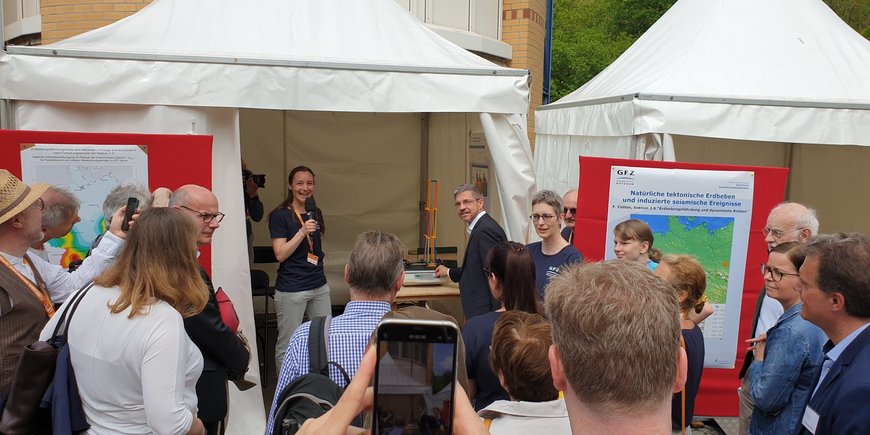
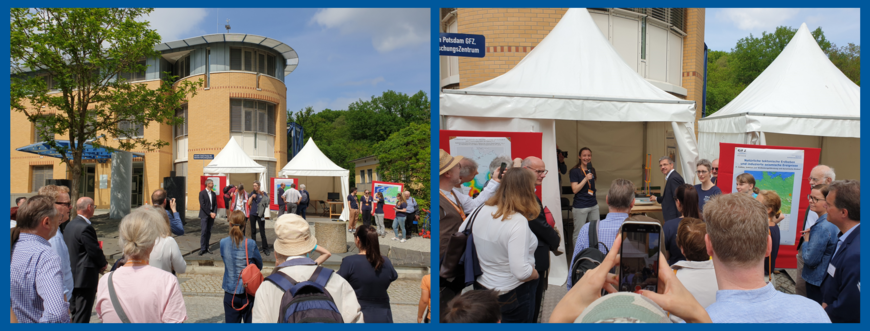
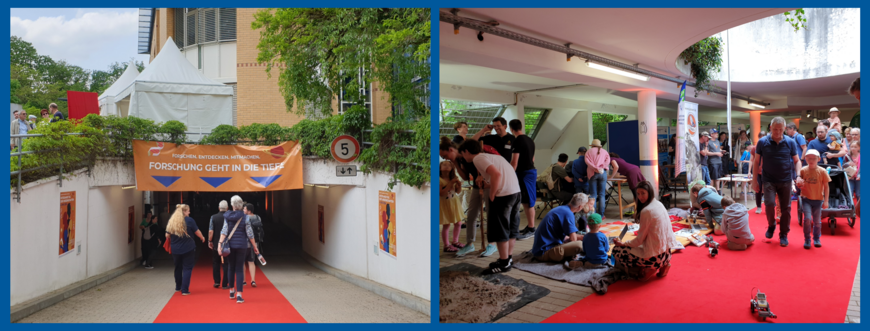
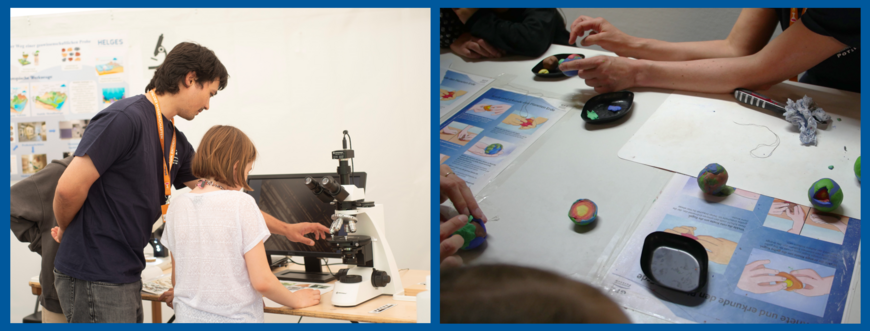
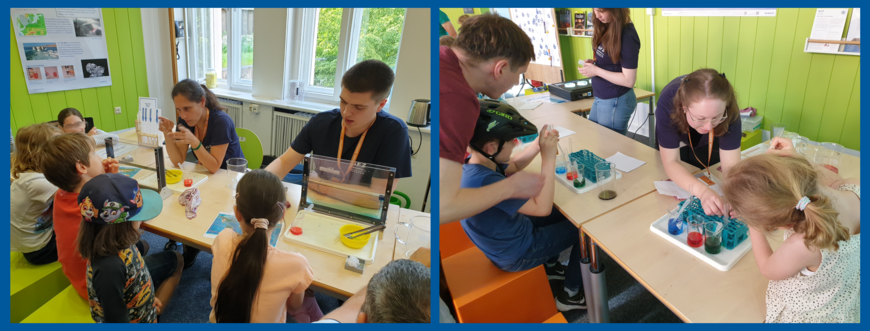
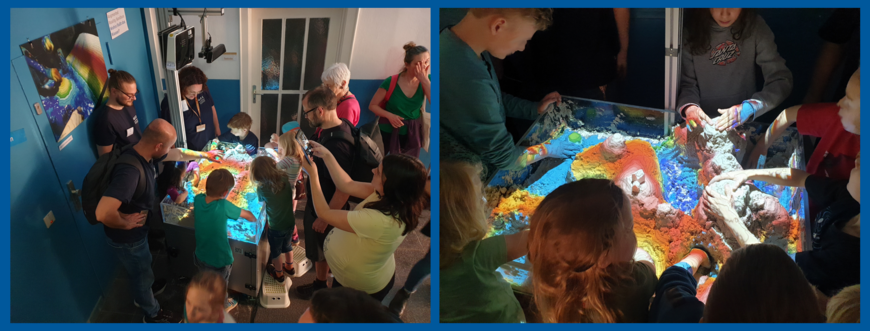

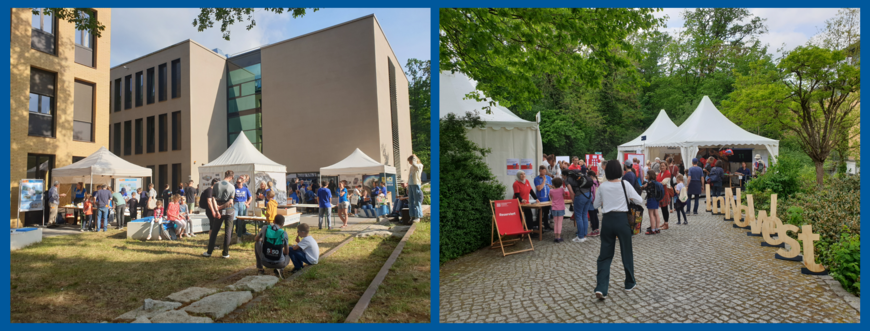
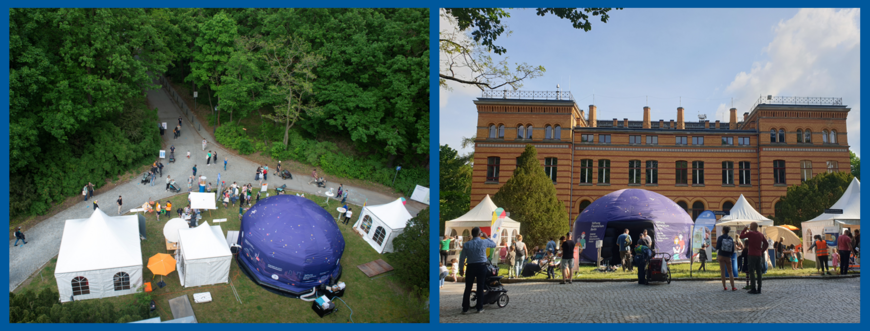
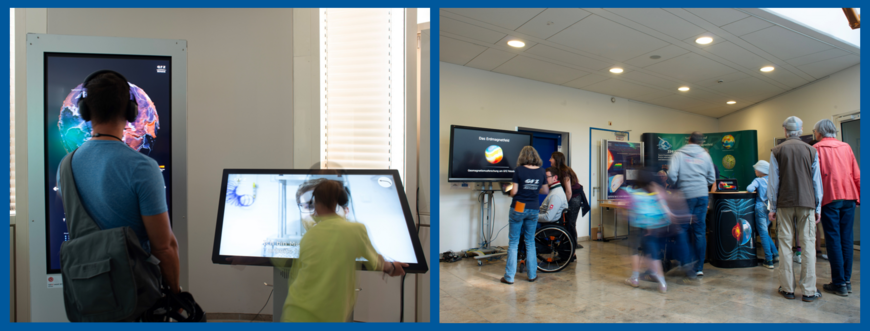
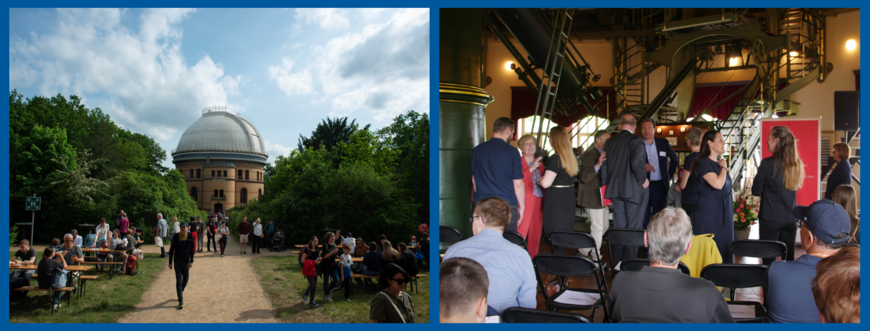
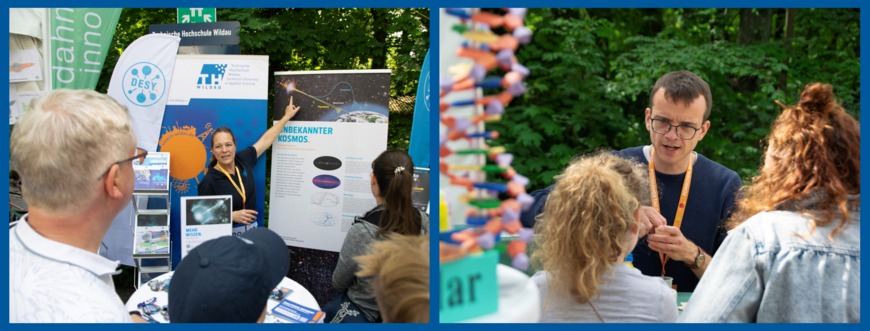
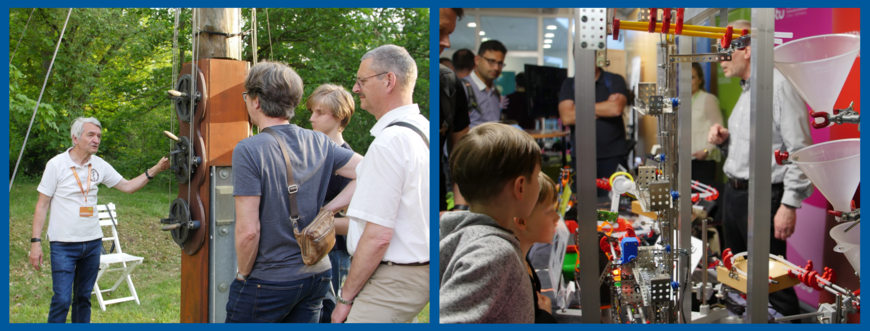
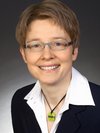
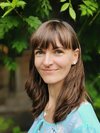
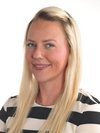







![[Translate to English:] [Translate to English:] Abror Gafurov von dem Schriftzug "Welcome to Azerbaijan" und den UN und COP Logos](/fileadmin/_processed_/2/5/csm_2024_11_Baku_COP29_Abror_Gafurov_1042faec82.jpeg)


![[Translate to English:] Martin Herold standing in front of the library on the Telegrafenberg](/fileadmin/_processed_/c/d/csm_Martin_Herold_d385ee4dd9.jpeg)
![[Translate to English:] Many people are listening to a presentation in the GFZ lecture hall.](/fileadmin/_processed_/c/a/csm_1_Bild1_hell_b9c0e9f5ed.jpeg)






![[Translate to English:] Both scientists sitting on stools in front of a wall of books in the Telegrafenberg library](/fileadmin/_processed_/6/6/csm_Buiter_Castell_DORA_4_e87cb1ea18.jpeg)
![[Translate to English:] Gruppenbild mit 4 Personen](/fileadmin/_processed_/8/d/csm_20241017_GFZ-Emmerman-Medal-005_web_reinhardtundsommer_21a414fa4a.jpeg)






![[Translate to English:] Ice landscape with five red tents](/fileadmin/_processed_/8/9/csm_Zeltlager_auf_dem_Eis_Urheberin_Jenine_McCutcheon_5ced2d523b.jpeg)


